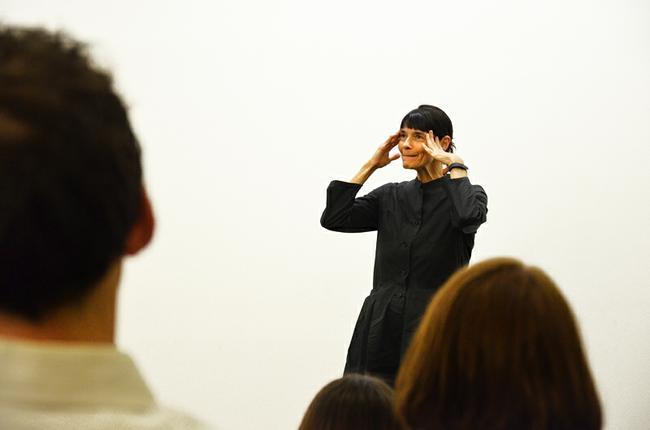MU students and faculty from varied departments made their way to Pickard Hall at 5:30 p.m. Friday to enjoy a screening of “A Woman Like That,” a film by Ellen Weissbrod.
The MU screening of “A Woman Like That” was the film’s Columbia premiere, and was sponsored by the departments of women’s and gender studies, art history and archaeology, english, film studies, history, romance languages, theatre and the Museum of Art and Archaeology.
The film was written, directed, produced and edited by Weissbrod, who traveled all the way from New York to Columbia to show the film at MU.
The documentary centers around the life story and work of 17th century Italian painter Artemisia Gentileschi. Gentileschi is often considered the first internationally famous female artist. The film also depicts Weissbrod’s own journey toward a more fulfilling life while she travels the world in pursuing the truth on the life behind Gentileschi’s art.
Weissbrod has been in the film business for more than 30 years, but this is her first movie with such personal significance.
“We call it a coming-of-middle-age story,” Weissbrod said during the Q&A session after the film. “Sometimes not everyone becomes who they want to be at 25.”
Originally, Weissbrod intended to film a movie documenting a Gentileschi show at the St. Louis Art Museum. But when the show fell through, Weissbrod set out to travel across the world with her camera in order to research Gentileschi’s life.
While in St. Louis, Weissbrod met Columbia natives Laura Pintel and Meg Milanick. Commentary from both Pintel and Milanick are featured in the film. Friday’s screening was the first time either of them had seen it.
“It was very exciting and I loved what she did with it,” Pintel, who is an artist herself, said. “It’s not your everyday documentary. The way she approached it is very unique.”
Milanick, an MU alumna with an MA in art history, was also pleased with the outcome of the film.
“She also made me remember what makes an artist great,” Milanick said. “An artist can tell their story in a different way and integrate that extra dimension that makes it worthy of stopping and talking about.”
To make the film, Weissbrod traveled across the globe with her camera. She filmed scenes everywhere from a Kentucky high school where students study Gentileschi’s work to Italian cities such as Florence and Naples where Weissbrod discusses Gentileschi and the nature of her work with critics and historians.
During her travels, Weissbrod took the time to stop and converse with other people, primarily other women, about Gentileschi and her work. They were typically very generous with their comments, she said.
“(The film) also says something about how women relate and how open they are,” Pintel said.
The film’s title references Weissbroad’s desire to be a woman like Gentileschi.
“You watch reality TV and you think all women talk about is how fat they are,” Weissbrod said. “I think that’s what you like about Artemisia. She not only got to make works but she got to make meaningful works.”








